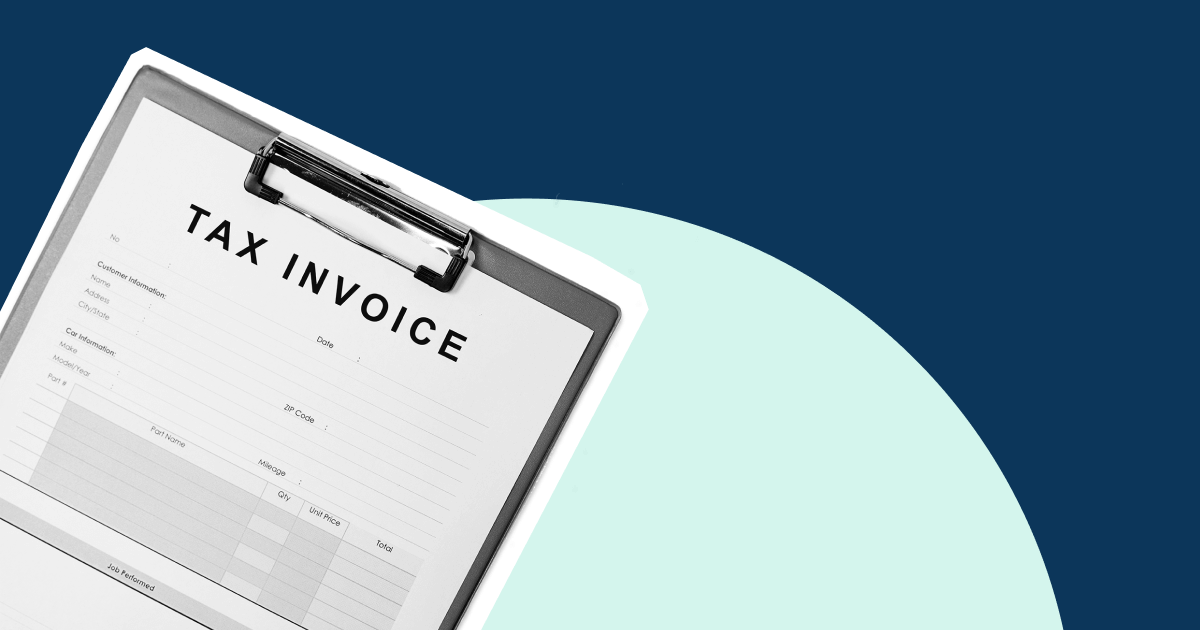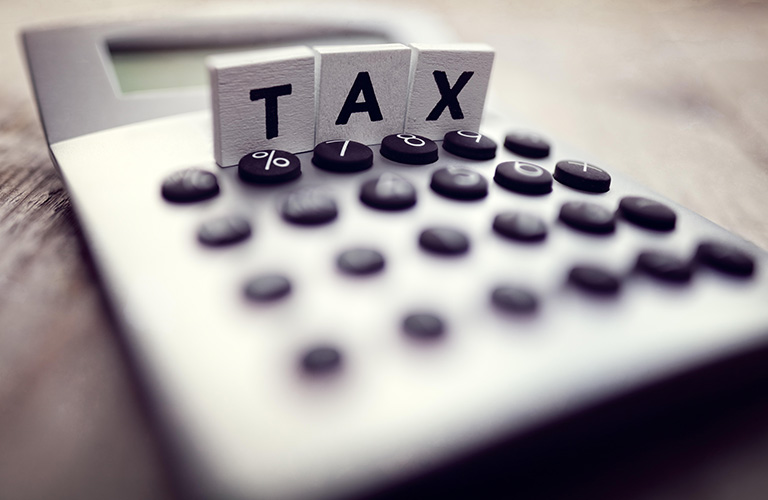GST is an unavoidable part of doing business. Here, owners are required to issue what is known as a tax invoice, a specific type of invoice that sellers of goods and services will need to provide to certain customers. These invoices refer to the amount of GST on a purchase and are used to claim a tax deduction. What is the concept of a tax bill? The answer in the rest of the article.

What is the invoice?
Invoices are generally a document in which a product or service transaction is registered, which includes certain important information, so that the IRS knows the movements of funds, VAT and other taxes from natural or legal persons, as well as financial validity, the invoice is a legal document, so it can be considered as material evidence of the transaction between two persons.
Definition of tax invoice
The tax invoice is an invoice issued for the taxable supply of goods and services, where the tax invoice extensively contains details such as description, quantity, value of goods/service, taxes imposed and other details that may be determined, the tax invoice is the recipient's basic guide to claiming a deduction of input tax for goods and services.
This tax invoice can be original or replica by requirement, and since there is no such limit, the supply of products can vary according to the availability of the registered supplier, basically, it is just a summary invoice consisting of the goods sold, the tax imposed at the time of service delivery and the tax of other services.
Difference between tax invoice and receipts
The supplier issues both tax invoices and receipts to the customer, an invoice is sent to claim payment for the goods sold or services provided, in return, a receipt is issued as proof of payment, usually both the invoice and the receipt contain the same data.
When is the tax bill required?
Typically, a tax bill is required when making a taxable sale, this means that if a company sells a product or service subject to a sales tax, it must submit a buyer's tax bill, the specific requirements of a tax bill can vary according to jurisdiction, but generally it is required for any transaction involving a sales tax.
Why is the tax bill necessary?
Tax bill requirements vary depending on which countries apply GST, but the tax bill generally remains, and all countries are required for the following purposes:
- to support a registered person's claim for deduction of - input tax incurred on their standard classified purchases
- Specify which supplies should be included in the tax invoice
- Determine when input tax can be claimed based on the tax invoice received from the supplier.
- Specify the date of tax invoice when input tax is calculated.
- Using an accounting software can help calculate taxes and make the billing process simpler.
Also one of the most important advantages of GST bills is that it provides one source of information for all transactions, this makes tracking and managing taxes due from each sale easier and helps ensure that all taxes are paid on time, the tax bill eliminates the need for multiple bills and facilitates ensuring all taxes are paid in a timely manner.
In addition, the tax bill also helps reduce the cost of doing business, by having one source of information, companies can save time and money by avoiding the need for additional paperwork and manually input data.
Who issues tax bills?
In most cases, the seller is responsible for issuing the tax invoice, this is because the sellers collect the sales tax from the buyer, however, the buyer may also need to issue the tax invoice in some cases.
For example, if a company buys goods or services for use and they are required to self-assess a tax.
Tax Bill Creation Requirements
Creating a tax invoice requires a list of items in the right details, when details are erroneously included, the tax bill becomes flawed and must be disposed of to create a brand new invoice. The items to be included are:
- Correct details of the purchase process
- Service type or product
- The price set by the company and the buyer alike
- Tax amount applicable to each element
Form of tax invoice
Companies need different taxes (HST, GST, VAT) From its customers on products and services and inform the government, where the tax bill is issued from one registered seller to another for input tax credit, it is just a brief invoice that can be used for GST/HST whether you report monthly, quarterly or annually, the tax bill must be issued when the customer is registered in GST.
The tax invoice may consist of the following details:
- It contains the phrase "tax invoice".
- Name, address and contact details of the seller
- Invoice Number
- Invoice issuance date
- Buyer's name and address
- Tax Identification Number
- Quantity of goods/services
- Unit Price
- Total amount including taxes
- Taxes on each component
- Payment Data
At the end of the fiscal year, invoices are sent to the relevant tax authorities.
What is the electronic tax bill system?
Electronic tax invoice, commonly referred to as electronic invoices, is a system in which all invoices are verified electronically and signed and details sent to the tax portal in real time.
Under the new electronic invoicing system, businesses' business/accounting software can be combined with new electronic tax records (ETRs - Type C), known as the console, which verifies the accuracy of the invoice, predicts the invoice electronically, and then transfers details to the tax portal.
Once the invoice is successfully validated, the console invoice number for each invoice is generated by the console, and in addition to the invoice number, each invoice is added with the QR code and serial number of the console, collectively called electronic invoices or electronic tax invoice.
Good tax invoice practices
Good tax billing processes require best practices to keep your cash flows under control, including:
- - Find out what to include in your tax bills
- - The need to include all the basics
- - Create an easy invoice, so it's easy for customers to understand.
- - Follow-up on unpaid invoices in history to avoid payment delays.
Conclusion:
The issuance of tax invoices is necessary to demonstrate the supply of goods or services, a tax invoice must be issued at the time of supply by all taxpayers registered in GST, from the buyer's point of view, receipt of the tax invoice for purchased goods or available services is necessary to claim the deduction of input tax. Furthermore, the tax bill is also necessary for the purposes of various financial reporting.
Important Topics
Reference
1. << Your Property Tax Bill Explained>>, palmcoast
2. << Electronic billing>>,timesofoman

Comments
19 Aug 2023 08:21 PM
بهاء
بالتوفيق
19 Aug 2023 08:23 PM
مازن
شكرا على المعلومات
19 Aug 2023 08:25 PM
محمد
شرح موفق
Add New Comment